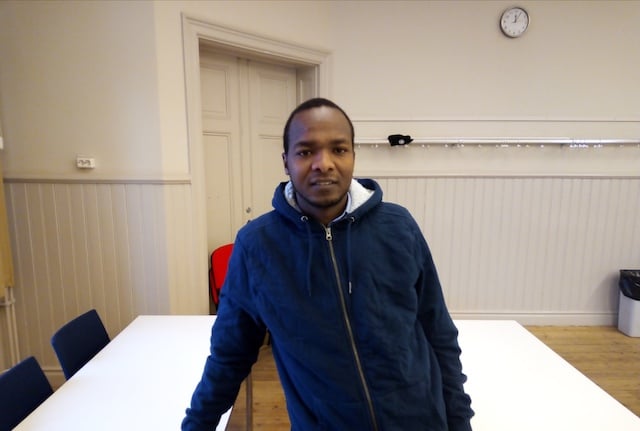“Are you sure you have the chance to get the scholarship?”
“Well, for a country where the gender equality is at best, it is possible.”
This conversation happened when I told my friend that I applied for the Swedish Institute (SI) Study Scholarships. I could sense a big doubt in her mind and it was not totally her fault. Most people probably would have the same thought. If you are a woman in your 40s with on-and-off experience in the workforce due to family and work business, how much hope could you have to get a master’s scholarship? Others would have settled with their careers and lives, and the millennials are ready to fulfil the positions. Therefore, when I was announced as one out of ten recipients from my country, I convinced myself that I had been given ‘a blank cheque’ that I would one day need to honour since I would gain competences that I could use throughout my life.
 Photo: Suci in traditional Swedish attire
Photo: Suci in traditional Swedish attire
I moved to Sweden on August 15, 2018. First of all, I admire how the sustainable lifestyle is maintained in this country through at least two good practices: The second-hand stores and waste sorting. After exploring the second-hand stores around the area where I lived, I wrote an article for Indonesian student blogs in Sweden. I conveyed the economic, social, and ecological benefits of running a second-hand store which is not only to get humanitarian funding and maintain a circular economy, it also maintains the mental health of society members by channeling the spirit of volunteerism. I might never forget Habiba Licina, an immigrant from Bosnia, who healed her mental breakdown during the Bosnian war in the second-hand store of Svenska Röda Korset. More stories about her and this store could be accessed here.
As a Muslim, I have no difficulties to keep to my worshipping routine such as five daily prayers, two of which are conducted during the class break. Jönköping University (JU) provides a praying room where all religious followers can carry out their worships. It also is a cozy place to meet Muslims from other countries. Halal food, even some specific seasonings to make Indonesian home food, is available in supermarkets near the student apartment. Hence, my friends and I – we were five Indonesian students in JU – were excited when the student union asked us to participate in the Culture Day. We held Indonesian culture event and the audience were engaged in quizzes, dancing, singing and tasting our traditional food in order to celebrate a common fact of both countries have: bonded with diversity.
 Photo: Introducing the Indonesian culture in Culture Day, a weekly event in JU
Photo: Introducing the Indonesian culture in Culture Day, a weekly event in JUWhen I arrived, Sweden was preparing to hold an election in September. I took this opportunity to learn from political parties, who were campaigning around the Juneporten, about how Sweden employed gender equality in the national representation. The representatives of political parties enlightened me with sample practices to promote gender equality in political space. For example, the names of male and female candidates were arranged alternately on the ballot sheet, and the important of ensuring women held the top positions in the political parties. I shared these stories in the following Indonesian-language audiovisual presentation to my fellows who are concerned with the low proportion of women in political decision making position.
Calling your lecturers by their first names, which is not acceptable in my native country, was also another interesting experience. I could feel using the first name of your lecturers influences the atmosphere of teaching and learning interaction. It is a fortunate to learn how the designation can actually build, or otherwise break, a mental barrier to critical thinking. Here, adapting to the ‘climate’ of the equal learning process in the classroom, proves that it is not the age that makes a person worthy or not to stand in front of the class but how much knowledge he or she shares.
Being a citizen journalist gives an enormous potential contribution when you meet people whether at formal and informal events. Attending public forums, such as the Human Rights Forum in Stockholm, provided a chance to produce an audiovisual presentation about people whose right were deprived. Meeting a fellow doc in campus brought to a profile article in a national newspaper because she has an extensive academic work which is pivotal for a country that has just entered the 4.0 industry.
In short, throughout this year, these living and studying experiences in Sweden are beyond my expectation. When our hopes start coming true, the ‘blank cheque’ should have been begun to be honoured. Don’t you think so?



 Please whitelist us to continue reading.
Please whitelist us to continue reading.
Member comments